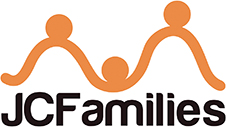Thanksgiving is coming up and that usually means your family is coming to town. For many people, this is a joyous occasion, for some of us, it means we have to brace ourselves for unsolicited advice and opinions. The most important thing to remember is that, most people are just trying to be supportive and nice. And most people haven’t a clue how to do that. Below are some things that family members may say about your child’s speech, along with some informative and kind responses. Remember, it’s not your job to change their opinions on what you are doing with your child. Your only job is to accept them for who they are and not fall into the cycle of being offended and defensive.
1. He’ll grow out of it– This is insulting because it makes you feel as though you are overreacting to things that are “normal”. However, this can be turned into an opportunity to become closer to the person rather than being upset with them. Ask them about a time when they grew out of something.
What to say: You’re right, Mathew may grow out of it. How about you? Was there ever anything that you eventually grew out of?
2. You should get her evaluated– This is the antithesis of #1, now they’re suggesting that something is very wrong with your child’s language and that you’re not making enough of a big deal out of it. The best thing to do here is keep an open mind. You may not have liked the way they phrased the suggestion, but it’s a suggestion that comes from a place of caring. Let them know that you are open to hearing what they have to say and will consider it. Really keep an open mind, don’t just say it to end the conversation. Consider giving a speech therapist, (or whatever professional they suggested) a call. At the very worst you’ll be more informed, at best, the person you called will confirm that your family member was incorrect.
What to say: You know what, I have/haven’t considered that. It’s something I’ll look into. Do you have any recommendations?
3. You have to stop speaking for him, he’ll say the sounds if you make him. – This comment can make a parent feel like it’s all their fault. Fact: there are many components that go into making up a child’s language. Those components are both external (influence from what they heard around them) and internal (a struggle to understand or form words). There really isn’t any way for a parent to single-handedly affect their child’s speech. This is why my speech therapy is focused on involving everyone and everything in the child’s life. When it comes to language it’s very hard to “make” a child say anything. Correct articulation and grammar takes practice, period. It’s not about forcing a child to say something. Let’s remember, your family means well. Here’s the best way to respond to this:
What to say: I know it seems like I’m speaking for him, but what I’m really doing is giving him a language model. On less hectic days I would have Nathan repeat the phrase after me to practice his speech, but today I’m just modeling.
4. “I’ll teach her how to talk. Just say it like this, watch me”– You’ve worked hard for months, with or without a speech therapist, just to get your child to say her name in a way that you can slightly understand, and here comes your aunt, who hasn’t seen you in a year, but thinks she is magically going to get Sarah to speak because “all you have to do is…” insert advice that you’ve no doubt tried yourself because, again, you’ve tried e-ver-y-thing. As I mentioned in #3 modeling language is great for kids, but it’s a holiday, let’s give her a break from hyper-speech-vigilance. The great thing about having all of that family around is that your child is indirectly benefiting from auditory bombardment. Typically, this is when a child hears a target sound over and over again in a short period of time, usually while listening to a story or during a speech activity. However, it doesn’t have to be that specific. When a child is around a lot of people talking and laughing, they are being bombarded with speech sounds. If you’ve ever learned a second language, it’s like being in an emersion course, everyone around you is speaking so you’re hearing everything and picking up new sounds and words.
What to say: Aunt Sandy, just you being here and talking to me and the rest of the family, benefits Sarah because she’s hearing all of this language and absorbing it. Besides, I want to give her a break today, she practices her speech all the time, she deserves it.
5. You’re the only person who can understand him– This can be tough to hear, especially if your child has been in speech therapy and you feel that he’s made progress. It’s sometimes harder for people who are not around everyday to be aware of the progress a child has made. In speech therapy, I always bring to the client and parent’s attention any new advances that I’ve seen. I also encourage parents to share these advancements with teachers, friends and family. Difficulty with language is not comparable to having a broken arm. You don’t go somewhere to get it fixed and walk out speaking like a Harvard graduate. Language takes years for us to learn (we should never stop learning language and expanding our vocabulary) and it takes a long time to acquire a new way to say things, especially after a child has had a few years of speaking in their own way. All of the accomplishments along the way make up what will eventually be clear speech, this is not something that happens suddenly and independently. Let your family know about all of the milestones that have occurred in your child’s speech. It’ll help them understand the journey that your family is on and see your child’s speech in a different way.
What to say: Yes, I understand him even more now that he makes eye contact with me/ learned to open his mouth a bit more when he speaks/ speaks a bit slower/ is working on speaking in shorter phrases etc.
Did I forget anything else that families might say? Write back in the comments section and how let us know how you handle it.
What I’m into:
Movies: I just watched this documentary called The Internet’s Own Boy it follows programming prodigy and information activist Aaron Swartz. He’s the creator of Reddit, a social networking news website. The movie was outstanding. It showed me how some entities really work hard to monetize knowledge and why knowledge and ideas should be free and accessible to everyone. I highly recommend this doc. I rented it from Amazon Prime.
Thanksgiving: I live by the motto, sometimes I’m fit sometimes I’m fat, and this Thursday, the latter half of that motto will be my mantra. How often do I get to eat stuffing, mashed potatoes and sweet potatoes? How often do you get to have multiple carbs on your plate and not feel bad about it? Once a year, that’s how often. So I’m eating whatever looks tasty, besides, if you put one bad thing on your plate with one good thing, they cancel each other out. Mashed potatoes and sweet potatoes? Sweet potatoes are good for you, viola! The mashed potatoes are canceled out. Turkey and gravy? Turkey’s protein, and there’s hardly any fat in protein so it’s like eating nothing at all, viola! Enjoy your thanksgiving everybody, see you next week!
Briana Evans, CCC-SLP is a licensed, certified speech language pathologist and owner of Speech Quest Speech and Language Therapy. She specializes in articulation, reading skills and early language development. She graduated from Columbia University with a Master’s degree in Speech Language Pathology. In addition, she is working toward certification in PROMPT therapy, a kinesthetic articulation technique. She currently provides in-home or at-school services for children and teens. She believes in a lifestyle approach to speech therapy, which includes embedding support throughout the client’s daily life.
Speechquestjcny.com
Twitter: @speech_quest



